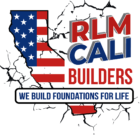Grouting Types as Foundation Repair Services
Structures built on the shaky ground frequently need soil improvement to maintain the safety and stability of neighboring structures. When subsurface examinations of a site reveal the presence of such structural faults, remedial actions must be taken to make the formation appropriate for the planned usage. The procedure of correcting the foundation problems is known as “grouting.”
Grouting Chemicals
Chemical grout is a quick and inexpensive way to bind in-situ soil particles and seal tiny cracks, fractures, and leaks. Chemical grout is driven into the surrounding soil through seams and fissures, where it forms with the soil to produce a somewhat impenetrable mass.
In the technique, a specially designed fluid grout (usually sodium silicates, acrylates, polyurethanes, or MC-Silicates) is injected into existing pore spaces in finer-grained soils such as silts and clays that resist cement penetration. Chemical grouts differ in terms of strength, viscosity, toxicity, and cost.
Grouting Under Pressure
Under pressure, a liquid cementitious material is injected into huge gaps, empty spaces between soil particles, fissures, or even between subsurface-bearing elements and an existing structure.
Pressures are applied to nearby earth formations or building structures using this approach, as in floor or foundation leveling. Furthermore, the grout must gel or harden inside the treated regions.
Compaction grouting, curtain grouting, chemical grouting, permeation grouting, and any other application where the grout material is put under pressure are all examples of pressure grouting.
Grouting Compaction
By pouring a low-slump cement mixture into the soil under pressure, compaction grouting enhances the carrying capacity of foundations and underlying soils. As it is pumped in, the cement pushes aside the surrounding soil, compacting it and increasing its density while generating a grout column or bulb.
To attain the optimum outcomes at a specific location, this strategy is simple in concept but needs careful preparation based on an understanding of on-site conditions.
Grouting with cement (slurry)
The pressured injection of flowable particulate grouts (flowable fill) into open cracks, voids, and enlarged fractures is known as cement or slurry grouting.
Injection into abandoned pipelines, pressure-injected anchors, stability of gravels and shot rock, dam rock foundation treatment, and, under certain conditions, containment of plumes arising from hazardous waste spills are all applications.
Slurry grouting is made up of finely crushed slag or Portland cement, dispersants, and huge amounts of water to make a slurry mixture capable of penetrating fine sand or finely split rock.
The RLM Retrofit Foundation has over 20 years of experience in steel piering, helical piling, and underpinning. Our skilled estimators will offer you the most accurate evaluation of your structure’s condition as well as the most efficient and cost-effective repair option.
Foundation settlement symptoms include:
Cracks in the stairwell
Horizontal fissures
Cracking stucco
Floors that are uneven
separating drywall
Who do I contact for Foundation Repair?
RLM Retrofit Foundation is pleased to provide Foundation Repair West Hollywood services.
Visit our website at https://rlmretrofitfoundation.com/ for more details.
Foundation Repair Using Grouting West Hollywood
How the Summer Weather Affects your Concrete West Hollywood










